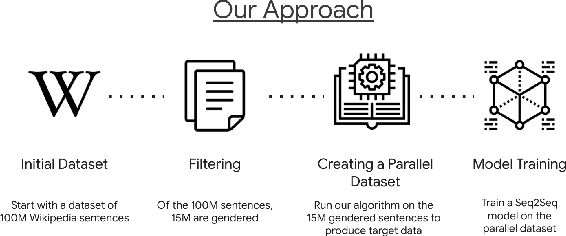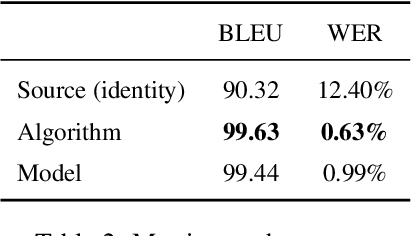They, Them, Theirs: Rewriting with Gender-Neutral English
Paper and Code
Feb 12, 2021



Responsible development of technology involves applications being inclusive of the diverse set of users they hope to support. An important part of this is understanding the many ways to refer to a person and being able to fluently change between the different forms as needed. We perform a case study on the singular they, a common way to promote gender inclusion in English. We define a re-writing task, create an evaluation benchmark, and show how a model can be trained to produce gender-neutral English with <1% word error rate with no human-labeled data. We discuss the practical applications and ethical considerations of the task, providing direction for future work into inclusive natural language systems.
 Add to Chrome
Add to Chrome Add to Firefox
Add to Firefox Add to Edge
Add to Edge